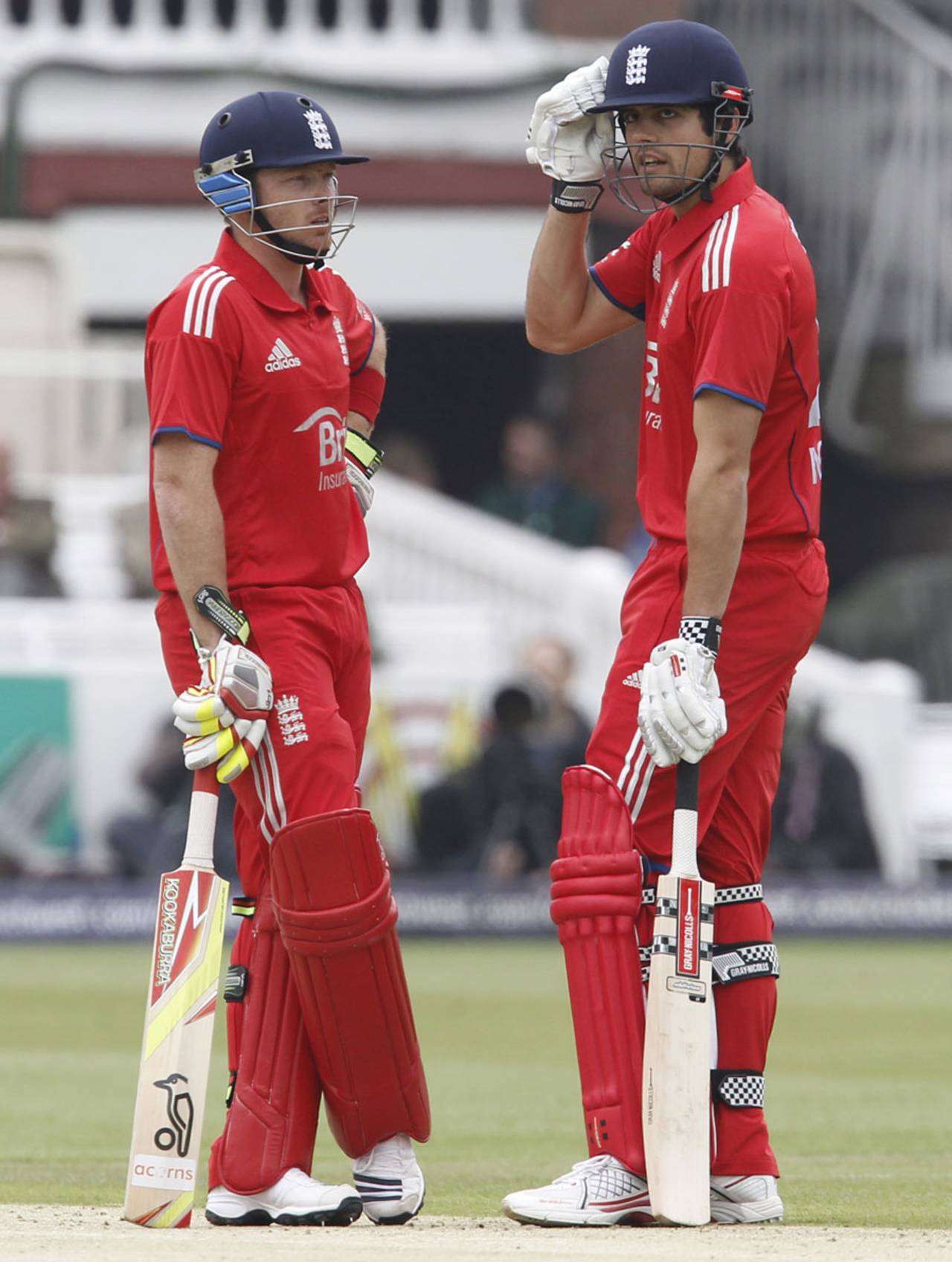Which was England's worst defeat of the winter, the Ashes or the ODI series? Oh for the ego, for the soul, for the statisticians and for the careers of some of the participants, the Ashes of course. Yet the urn ultimately depends on exchange for the great and rolling drama of its storylines, and England's problems are essentially cyclical too.
The ODI series gave rise to the usual low-level despair at a format that for England has been forever star-crossed - a repository for wasted hope and lost opportunity. It has never chimed well with the national cricketing psyche. Here are the real ruins.
I first watched England play the one-day game in 1979 at Lord's, the
World Cup final against West Indies (it was the second edition of the tournament, a big deal but not yet
that big a deal). A 60-over match, both sides in whites (the authorities still too stung by Packer to have yet yielded to his innovations). West Indies were reigning champions and naturals at the format. They had no need to change their Test side and yet they had: Collis King played a key innings alongside Viv Richards, out-blasting the master blaster. England opened with Brearley and Boycott. Given West Indies' attack it was not an illogical move, but it was essentially a defensive one, a response designed to mitigate the opposition rather than accentuate internal strength.
England lost, as they have lost every major ODI final that they have played, and indeed every world tournament they have entered. Throughout, it's hard to remember a time that they have not overthought and over-planned, over-examined and underperformed.
They have played less one-day cricket than their major rivals and that has been an ongoing disadvantage. But they have missed the tidal turns in the game, especially since Sri Lanka transformed its mentality with their win in 1996.
As the ICC position paper reinforces, they remain lavishly resourced. They agreed, along with Australia, to move an Ashes series forwards to give themselves the best chance in the next World Cup (ultimately to their detriment in Test cricket - it cost them the urn). They reached the final of the Champions Trophy and were, by a quirk of the numbers, briefly ranked No. 1 in the world (there are of course lies, damned lies and ICC statistics…).
And yet, and yet… Here comes a 4-1 defeat that was not overwhelming but inevitable, and that was the hardest part to take. The next year is inevitable too: a piecemeal series in the West Indies staffed by the T20 side, some home games that will offer false hope, and then madcap, on-the-hoof changes of plan on the eve of the tournament. 'Twas ever thus.
It is a Cook and Bell story. At home in early summer against two new balls it was a successful strategy, but that's history now. As the Test series showed, things shift quickly. England abroad are always outgunned. They are a side designed to win games with scores of around 270. They regard 300 as a triumph even when they lose (and does any side have their 300s chased down as often as England?).
As Australia have made clear, and as the general trend in the game is showing, teams will go hard upfront with batters built like brick outhouses. Cook and Bell each got their place during golden runs of form. England's stats men will bend over backwards to show that their averages and scoring rates are comparable with other opening pairs, and yet every instinct of the cricket watcher screams against it.
England's sole tournament success, at the World Twenty20 in 2010, was built on bravura selection. Michael Lumb and Craig Kieswetter opened, and while they never had huge partnerships, they had rapid and uncompromising ones. They sent belief running down through the team. Suddenly England were a proactive side not a reactive one. It was a shift not just in personnel but in philosophy, and it's still there. Stuart Broad is biased but his description of England's T20 batting as "scary" isn't entirely inaccurate. It's impossible to think of the same adjective being applied to the current 50-over team.
Tournament cricket demands aggression. You must be prepared to lose in order to win. Andy Flower got that in 2010. In that spirit, here's my XI for the World Cup: Hales, Wright, Pietersen, Bell, Morgan (c), Buttler, Stokes, Patel, Broad, Jordan, Briggs.
Jon Hotten blogs here and tweets here
